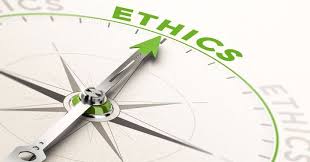Ethical Business Decisions in the COVID-19 Crisis

These are scary times. We have not experienced such a crisis in our lifetimes. 9-11 was a traumatic event with a tragic impact on our country.
The COVID-19 crisis is presenting all of us with enormous challenges. Health and safety is our primary concern while the COVD-19 virus spreads. Our economy is being devastated by the need to ensure health and safety of our country.
Our healthcare system, however, is about to be tested beyond anything imaginable as the number of patients and need for supplies increases exponentially. It is a very anxious time for everyone, and eventually we will look back on this time for better understanding of how we got here.
Companies have to assess important stakeholder interests – employees, shareholders, communities and government. Businesses have to lead from the top – this is an important moment for business leaders to navigate the crisis and bring their companies through the crisis to a recovery.

Ethical business decision-making is critical for businesses. In other words, ethics is not less important during this crisis; rather, ethics is even more important because of the difficult problems businesses are facing.
Many businesses have closed their offices and mandated that employees work from home. To the extent that businesses are able to generate revenue from such activities, businesses are doing so. Manufacturing companies, as an example, are being forced to shut down because of the dangerous proximity among workers who could end up infecting each other. The auto industry has closed their manufacturing facilities because of this reason.
Service industries – e.g. airlines, hotels, bars, and restaurants – are suffering the repercussions from an economic slowdown. Employees from major hotels and airlines are being furloughed. Restaurant and bars have been forced to shut down and employees have been terminated. Unemployment claims are sky-rocketing.
Businesses have to make these decisions while balancing important stakeholder interests – an overarching concern is health and safety. That makes sense. Companies have reinforced the need to stay at home by ordering work at home solutions. Further, companies have taken aggressive steps to prevent employees from coming to the office. These drastic measures are needed to mitigate health risks.
Secondary stakeholder interests focus on economic consequences – maintaining pay for certain employees even though they cannot work; facilitating work from home arrangements and continuing work to the extent possible to keep the company partially operating; and ensuring that furloughed works still have access to health insurance.
Companies involved in the production of healthcare supplies face even more difficult choices – their products may be essential to the treatment and pandemic response.

Companies have to weigh the needs of the community in which they operate. This is a classic situation where ethical business decisions cannot be made in a vacuum but require broader considerations relating to the health and safety of the community and the economic survival of employees, families and communities.
As a final stakeholder to consider, businesses have to weigh the impact of all of this on the federal, state and local governments. This is where businesses can partner, reavh out and coordinate with government entities to advance significant health and safety, economic and community needs.
Ethical business decisions are important at all times but when facing a real public health crisis, ethical considerations provide important guideposts to facilitate effective decision-making.
















It is not uncommon in the health industry to be sitting at the interface of the ethics vs compliance crossroad. This paradigm will become all too familiar as we move through the crisis we currently face. Can we relax a compliance stance in the name of ‘doing the right thing’, that ethical decision which may stretch the compliance boundaries?
The ability to make that decision of relaxing a compliance decision( albeit within an acceptable level of risk) in order to take the right ethical decision, is one of he key qualities of the modern day compliance person.